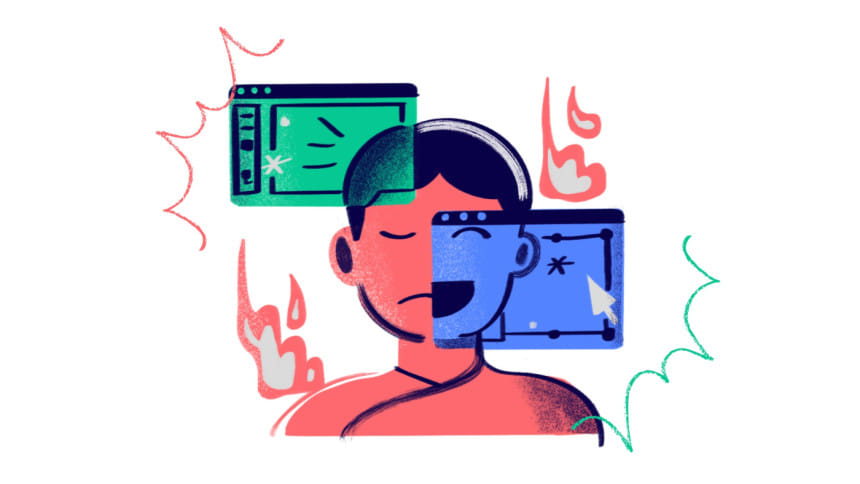In our algorithm-centric lives, we must extend our empathy

Every time a tragedy shakes the country, there appears to be a group of people, most of whom we primarily see on our screens, who seem to remain unaffected. I have seen this pattern repeat in tandem – the Bailey Road fire, the July uprising, and recently the Milestone tragedy. While mourning has continued to cling on to this country like a shadow, these people go on about their lives, continuing to post images of them hanging out with friends and lounging around coffee shops.
I fail to grasp the insensitivity and disrespect.
It makes me recall a conversation I had with a friend last year in July. In contrast to the battlefield our country had devolved into, then – bleeding under a sky which refused to keep quiet – it felt as though she was completely unfazed. She simply continued to share images from her trip, without a single mention of what was happening back home. When I confronted her about it, she claimed that she didn't want negativity to taint her precious peace. The conversation, while necessary, was futile. It merely reinforced how intently some people hold on to their bubble of privilege.
Some may call it virtue signalling. However, when any sort of misfortune floods the country, choosing not to share bits of their unperturbed lives on social media is the bare minimum. It's not radical to demand silence, if not compassion, when tragedy strikes. It's about being respectful enough not to be louder than the cries of death, to not disregard the weight of loss.
In this day and age, most of us resort to social media and online platforms to receive updates. Hence, the image of someone lounging about anywhere, which is seen almost immediately after attempting to make sense of harrowing developments, is not just bad timing; it is a failure to read the room, which makes it downright disconcerting.
This begs the question: Have we grown so desensitised to every atrocity that takes place across the globe? Coming across people we personally know – those who are just like us – demonstrating such behaviour is deeply infuriating. Ignoring tragedies does not make them any less real. A tragedy cannot merely be reduced to a minor inconvenience for some.
I feel as though behaviour like this particularly stings when it comes from people our age. We should know better than most the vital role social media plays in circulating news, how it can help in identifying missing children, how it can make the process of sourcing blood donations relatively easier, and how a newsfeed can disseminate real-time developments. I am left to wonder if grief ceases to matter unless it's our own. Nonetheless, we must remind ourselves that protecting one's peace should not come at the cost of being tone-deaf.
Sometimes we simply must observe and keep up, even if it's uncomfortable. Sometimes, the world demands our discomfort. It might disrupt our mental peace, but that's what being human entails. The price of empathy cannot be compensated with anything else. The least one could do is at least offer silence. The world does not stop when disaster strikes. However, as the saying goes, there is a time and place for everything.
Some of us might have the luxury of moving on, of course. But in order to do that, we must first reckon with what has transpired. Nonetheless, it seems as though some aren't willing to extend their empathy even to such a small extent. I am not asking for constant mourning, and I also recognise that some people grieve in different ways, but there's a fine line between silence and ignorance.
Anica Bushra Rahmaan is a student of Economics at BRAC University. Reach her at [email protected]

 For all latest news, follow The Daily Star's Google News channel.
For all latest news, follow The Daily Star's Google News channel. 








Comments